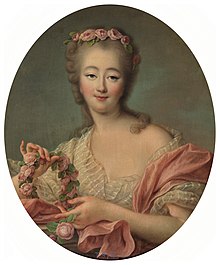Courtesans Throughout History and How their Purchases Tied Into their Identities
Situational Self Image-- The role he or she plays at any one time—helps to determine what he or she wants to buy or consume.
((examp. A guy who tries to impress his date as he plays the role of “man-about-town” may spend more lavishly, order champagne instead of beer, and buy flowers; purchases he would never consider when he hangs out with his friends, slurps brew, and plays the role of “one of the boys.”))
These dynamics affect the way people think about what they buy. If we systematically identify important.
Phryne was a Grecian hetairai (courtesan) that used her immense wealth from prostitution to rebuild the Athenian wall that Alexander the Great knocked down. People resented this at first because of her profession but later recanted their hesitation and engraved her name on the new wall.
Phryne did not do this simply because of a impulse purchase. She did it because of the role she was attempting to play. She did it thinking of her identity, her reputation, and the new role she was trying to adopt. People had mixed opinions on her at the time due to her job and her infamous court case. To better her reputation in the eyes of her peers as well as make herself appear to be an activist and a valued Athenian citizen, she rebuilt this wall for the city. The purchase effectively improved her reputation as later writings recall her fondly in contrast to earlier writings.
 La Belle Otero
La Belle Otero was a Parisian courtesan of Greek and Romani heritage. She posed herself as a Spanish dancer and used the purchase of mass amounts of jewels to play the role as a prestigious woman. Though looked down upon, she set trends in France with her glitz-and-glamour outfits that made many housewives jealous. She was written to have worn more jewels than duchesses or queens themselves, catching eyes everywhere.





